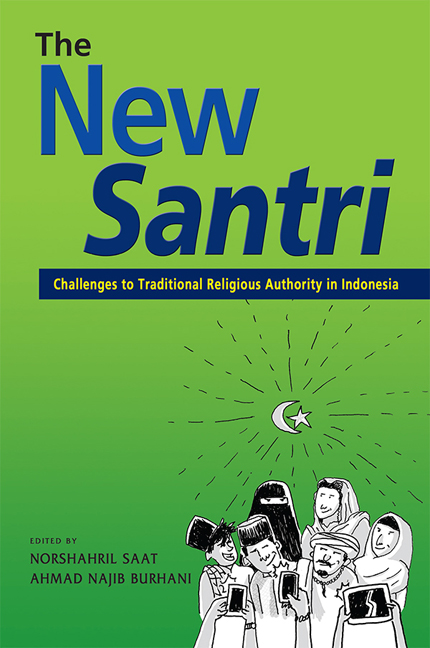11 - Religious Education, Sufi Brotherhood, and Religious Authority: A Case Study of the Sulaimaniyah
Published online by Cambridge University Press: 24 November 2020
Summary
Introduction
Studies on Indonesian Islamic organizations and scholars in their connection with their authority is well recorded (Azra, Dijk, and Kaptein 2010; Din 2012; Hefner 2016; Hoesterey 2011; Jabali 2006; Kaptein 2004; Kingsley 2014; Zulkifli 2013). This chapter offers a distinct perspective based on the experience of Islamic transnational organizations. It considers how transnational organizations from Turkey build religious education institutions, change their names to get support from the local government, and utilize Sufi teachings to maintain their authority. This chapter adopts the concept of “opportunity spaces” by M. Hakan Yavuz (2003 and 2004), who applies it when analysing the Muslim social movements in Turkey. The concept is useful to understand the reasons for the popularity of Turkish Muslim movements in Indonesia. An explanation of the concept will begin the chapter.
A discussion on the establishment and transformation of the Islamic education institution of the Sulaimaniyah, formerly known as asrama, and then later changed to pesantren, follows. The name change not only illustrates its focus on tahfidz (the person who memorizes the Quran) with the unique Ottoman Turkish methodology—that promises a faster way to memorize the whole Quran compared to other methods—as a flagship programme, but also its way of gaining authorization from the Ministry of Religious Affairs (Kemenag). Later in the article, the Sufi elements of the Sulaimaniyah will be described. The Sufi brotherhood of the Naqshbandi Sulaimaniyah is where the religious authority in the form of charismatic authority, established since the very beginning by Sheikh Süleyman Hilmi Tunahan as the 33rd Sufi master in the Naqshbandi line. This is a Sufi ritual which connects all followers across the globe. This chapter demonstrates that religious authority in Indonesia is not only contested among local Muslim organizations, but also by the transnational religious movement and among them, the lesser known Turkish Sufi movement, the Sulaimaniyah.
Opportunity Spaces and the Establishment of the Sulaimaniyah in Indonesia
Indonesia is the most populous Muslim country in the world. With a population of over 250 million, approximately 80 per cent of whom are Muslim, Indonesia just like any other Muslim majority country, has experienced an Islamic revival with influence from overseas.
- Type
- Chapter
- Information
- The New SantriChallenges to Traditional Religious Authority in Indonesia, pp. 196 - 210Publisher: ISEAS–Yusof Ishak InstitutePrint publication year: 2020

